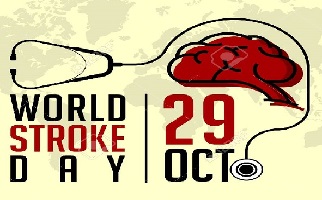Department of Health 2019/10/28 - 22:00

Mampe Marapyane
As World Stroke Day is commemorated, we are all encouraged to know our health status as early detection is key to being healed.
According to World Stroke Organisation (WSO): "Stroke happens when the blood supply to part of your brain is cut off, either because of a blood clot or a haemorrhage. Stroke is a leading cause of death and disability worldwide, but most strokes can be prevented by addressing a small number of key risk factors including hypertension, diet, smoking and exercise."
The WSO emphasises that it is important to significantly reduce the impact of stroke by recognising the signs that include: face drooping; weakness in your arms or slurred speech. If one notes any of these symptoms, they should treat them as a medical emergency and seek medical attention.
According Elma Burger, Deputy Director for Specialised Programme in the Gauteng Department of Health, rehabilitation for stroke patients is offered at most public health care facilities.
"We support patients recovering from stroke from ICU to general wards and follow-ups to the clinics. However not all the clinics offers rehabilitation but there are clinics where there is rehabilitation service point. Patients with stroke are also admitted into Tshwane rehab, South rand hospital and Edenvale rehabilitation unit," said Burger.
To prevent stroke kindly adhere to the following:
Reduce your alcohol intake, over 1 million strokes each year are linked to excessive alcohol consumption. If you drink, keep to a limit of 1- 2 units of alcohol a day.
Eat a healthy balanced diet, almost a quarter of all strokes are linked to poor diet. Eating a diet high in fresh fruit and vegetables and reducing consumption of processed food will reduce your risk of stroke.
Manage stress and depression, almost 1 in 6 strokes are linked to mental well-being. Managing stress, depression, anger and anxiety are all important to reducing stroke risk.
Stop smoking and avoid smoky environments, almost 1 in 10 strokes are linked to smoking. Stopping smoking will reduce your risk of stroke and the risks of people who live around you. Getting help to quit increases your chances of success.
Exercise 5 times per week, over a third of all strokes happen to people who don't get enough exercise. Twenty to 30 minutes of moderate exercise five times per week will reduce your stroke risk.
RELATED NEWS
No related news

